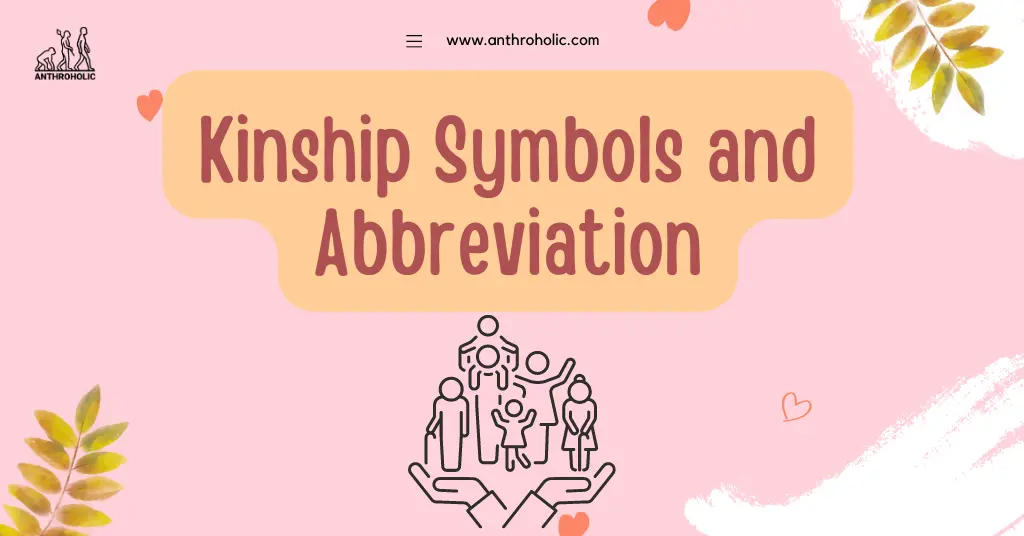AI Answer Evaluation Platform Live Now. Try Free Answer Evaluation Now
Kinship Symbols and Abbreviation
Kinship systems are fundamental to understanding the social structures of different communities and cultures around the world. These systems, indicating relationships between individuals, are often communicated through various symbols and abbreviations that anthropologists utilize to codify complex social ties. The anthropologist’s viewpoints can provide a comprehensive analysis of these kinship symbols and abbreviations, detailing their significance, commonly used symbols, and their variations across different cultures.

Understanding Kinship
Kinship, an integral part of social structure, embodies connections between individuals established through marriage, blood, or other interpersonal relationships. It offers a framework that governs social interactions, economic exchanges, power dynamics, and more [1].
The study of kinship involves a language of its own, employing symbols and abbreviations to effectively represent multifaceted relations.
The Language of Kinship: Symbols and Abbreviations
Anthropologists use specific symbols and abbreviations to denote gender, generation, marriage, and descent. This “language” of kinship allows for a simplified representation of complex familial and societal relationships. Here is a table detailing common symbols and their meanings:
| Symbol | Meaning |
|---|---|
| = | Marriage |
| – | Sibling |
| F | Father |
| M | Mother |
| B | Brother |
| Z | Sister |
| S | Son |
| D | Daughter |
| H | Husband |
| W | Wife |
These symbols can be combined to create complex chains representing familial relationships. For instance, MFB would refer to Mother’s Brother’s Father.
Variations Across Cultures
While these symbols and abbreviations have global recognition among anthropologists, the interpretation and understanding of kinship relations vary across cultures due to diverse societal norms [2]. Here are few examples:
Matrilineal and Patrilineal Societies
In matrilineal societies, kinship is traced through the female line (M, Z, BD, etc.), whereas in patrilineal societies, it’s traced through the male line (F, B, BS, etc.). These distinctions significantly influence societal roles and inheritance practices.
Affinal and Consanguineal Kinship
Affinal kinship refers to relationships established through marriage (=, H, W), while consanguineal kinship is based on blood relations (F, M, B, Z, S, D). These relationships have different social implications depending on the cultural context.
Significance of Kinship Symbols and Abbreviations
The use of kinship symbols and abbreviations plays a crucial role in anthropological research, enabling:
- Efficient Representation: Complex relationships can be easily represented and understood [3].
- Cross-Cultural Analysis: They facilitate comparison of kinship structures across different cultures.
- Deciphering Social Structures: Understanding kinship can provide insights into power dynamics, societal norms, and economic exchanges within a community.
Conclusion
Kinship symbols and abbreviations are instrumental in studying and interpreting societal structures across various cultures. They provide an effective language to communicate and understand the intricate maze of human relationships. As societies evolve, so too does the language of kinship, demonstrating the dynamic nature of cultural anthropology.
References
[1] Fox, R. (1967). Kinship and Marriage: An Anthropological Perspective. Cambridge University Press.
[2] Keesing, R. M. (1975). Kin Groups and Social Structure. Holt, Rinehart and Winston.
[3] Barnes, J. A. (1971). Three Styles in the Study of Kinship. University of California Press.




